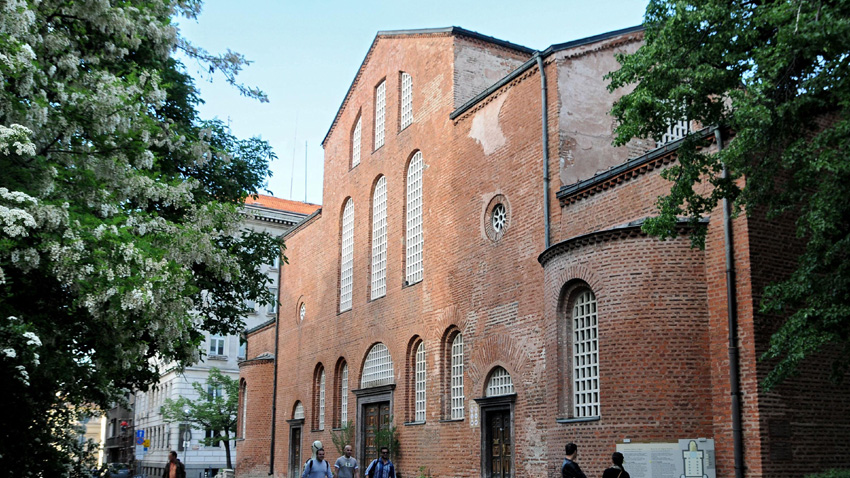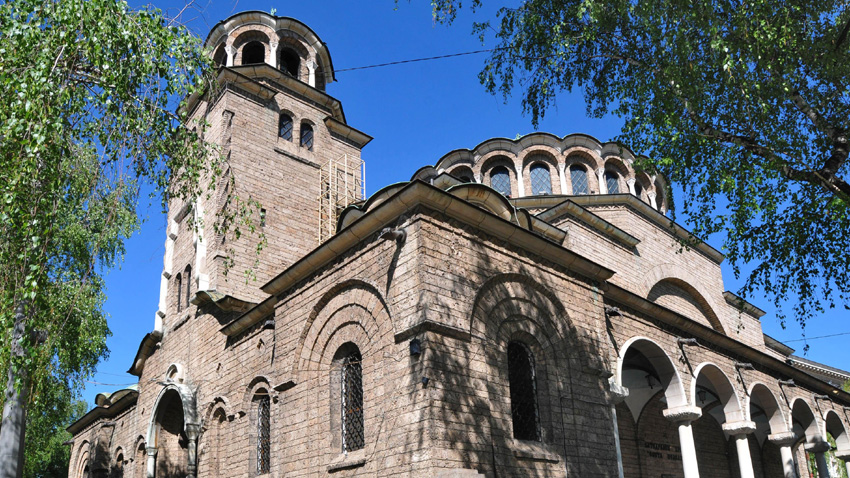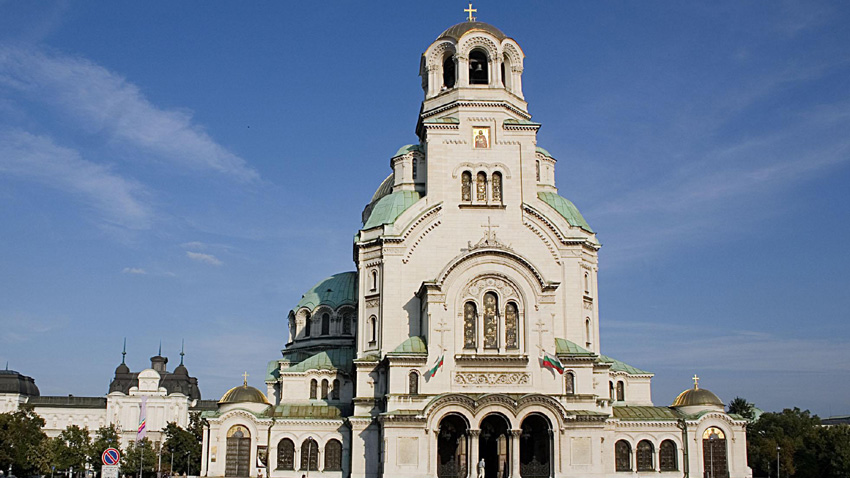During important Christian feasts Bulgaria's churches and monasteries attract lots of visitors. Some of them are guided by deep faith, others by superstition and curiosity, and still others by the drive for knowledge. There are many foreign nationals among them tempted by the great beauty of Bulgaria's holy sites.
From the total of 170 monasteries in this country, seventy are found in the territory of the Sofia Eparchy known with the name Sredets Holy Mountain. They are laid out in a circle around the capital city, at the foot of the surrounding mountains of Vitosha, the Balkan Range, Lyulin and Lozen, and are quite close to the city. So in the recent years the efforts of the Municipality of Sofia and the Faculty of Theology at St. Kliment Ohridski University of Sofia are focused on developing pilgrimage routes to them. More about the Christian sites in Sofia from Georgi Todorov.

„Of course, anybody who visits Sofia goes to its key sites - St. Sophia Church, St. Alexander Nevsky Cathedral, St. George Rotunda and St. Nedelya Church all located in the city's historical center. For example, the Serbs venerate their saints very much, so it is important to tell them that the relics of Stefan Uros II Milutin are found at St. Nedelya Church in Sofia. Every year, on the eve of the saint's feast on 29 October, his shirt is replaced. The old shirt is torn into pieces that are given to pilgrims. This tradition could become a highlight in Sofia's pilgrimage calendar that would attract many pilgrims from Serbia and from other Christian Orthodox countries.”

St. Nedelya Church that keeps the relics of Serbian king St. Stefan Milutin is one of the most beautiful churches in Sofia. It was built in 10 c. and its original name was in Greek, Kyriaki, meaning Lord's Day and today it is Nedelya (Sunday in Bulgarian). The relics of the Serbian saint who built many churches and monasteries during his lifetime, were brought to Bulgaria during the 1460 plague epidemic. In 1863 the relics were laid at St. Nedelya, and for quite some time the church was known as St. Kral (St. King). Georgi Todorov contends that many churches in Sofia are worthy of the world heritage short list. These include St. Alexander Nevsky Cathedral, St. Sophia Church and St. George Rotunda:

„These are emblematic shrines”, the guide explains. “We often talk about St. Paul in London and St. Peter in Rome, of Santa Maria del Fiore in Florence and of the Parthenon. If we bother to draw a comparison, we will see that St. Alexander Nevsky is the greatest achievement of Neo-Byzantine architecture. The style was revived in the late 19 and early 20 c. and the Sofia-based cathedral is its masterpiece. Its worth is historic because we do not have much surviving examples of original Byzantine architecture, and this makes the Bulgarian cathedral a veritable architectural pearl. Unfortunately, this remains largely unknown. So, we should present this cathedral to tourists by asking them to compare it with sites that display various styles, like basilicas, gothic churches and Greek churches. This will help them follow the evolution in the architectural idea of Christian churches. The dome creates the perfect idea about God. What I want to stress is that knowledge is of key importance, so we have to read enough about various Christian churches around the globe to become aware what we actually have here.”
English Daniela Konstantinova
30 March marks the end of the most blessed time of the year, as Muslims call the month of Ramadan. This year it started on 1 March, and the most important obligation Muslims have during this 30-day period is to refrain from food, drink and temptation..
Nearly 40 years ago, the Bulgarian Orthodox Church Communities (BOCC) in Western and Central Europe were concentrated in several cities. After our country joined the European Union and with the growth of the Bulgarian diaspora, the Bulgarian church..
The Feast of the Annunciation is the day when God's promise for the salvation of the human soul from the eternal torments of darkness is fulfilled. Its message is that God loves us, says Father Bozhidar Marinov from the "Exaltation of the Holy Cross..

+359 2 9336 661
